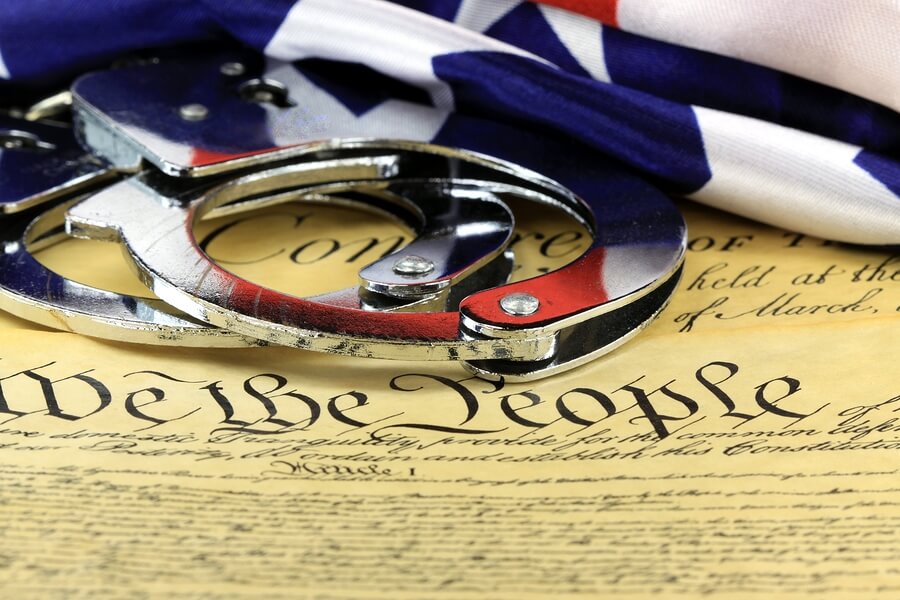December 29, 2017
So the police caught you with illegal drugs in your possession. Now what? Although the police might pressure you to confess, you should instead carefully analyze whether police legally conducted the drug bust. Fortunately, the U.S. Constitution puts strict limits on how police can investigate potential drug crimes. If you are charged with drug possession, an experienced criminal defense lawyer can pinpoint weaknesses in the state’s case and possibly get charges thrown out.
Violation 1: The Police Had No Valid Reason to Stop You
The Fourth Amendment to the U.S. Constitution protects you from “unreasonable searches and seizures.” This means the police cannot just randomly go up to people and start searching them or their belongings. Instead, police need reasonable suspicion before they can perform an investigatory stop, called a Terry Stop.
Reasonable suspicion must consist of more than a hunch or guess. Instead, police must point to specific and articulable facts that support a suspicion of criminal activity, including:
- Your actions are unusual for the location. For example, yelling “Stay away from me!” in a grocery store.
- Your actions are suspicious or unusual for the time of day. For example, you are removing items from a store in the early morning hours when the store is closed.
- You are dressed in a suspicious manner given the circumstance—for example, if it’s 100 degrees out, and you walk into a bank wearing a thick winter coat.
- You start running as soon as you see police.
If the police have reasonable suspicion, they can perform a brief pat down to search for weapons. Police, however, cannot detain you indefinitely, and cannot use the pat down as a fishing expedition to try and find hidden drugs. If they do, you might get the drug evidence—and the charges—thrown out of court.
Violation 2: The Police Did Not Have Probable Cause to Search You
Before they can perform a full-fledged search of your car, belongings, or person, police need probable cause that you have committed or will commit a crime. Probable cause doesn’t mean proof beyond a reasonable doubt, but it also doesn’t mean a mere suspicion or hunch. Instead, the officer needs reasonable grounds supported by objective facts.
Usually, police will start with a Terry Stop pat down and see if they have enough evidence to go ahead with a full-fledged search. If they don’t, then they will have illegally seized any drugs they uncover.
Violation 3: The Police Did Not Have Permission to Search You
Even without probable cause, the police can still search you and your belongings if you give permission. They can also search a home or car if the owner gives permission. For example, your spouse can give police permission to search your home even if you don’t.
However, if the police don’t have permission, they can’t perform a search and seize any drugs. If they do, your attorney might suppress the evidence by filing a pretrial motion.
Violation 4: The Drugs Were Not in Plain View
Under what is called the plain view doctrine, police don’t need a search warrant or probable cause if they see drugs right out in the open—for example, on the dashboard of your car. Instead, they can seize anything in plain view and introduce it into evidence against you. However, if the drugs weren’t out in the open, the police can’t grab them unless they supported the search with probable cause.
Call a St. Petersburg Criminal Defense Attorney Today
The police caught you with drugs does not necessarily doom you to a conviction. Contact an experienced St. Petersburg criminal defense attorney at Khonsari Law Group to review whether the police violated your Fourth Amendment rights. Call (727) 269-5300 today or complete our online contact form. Consultation and case evaluation are free.


